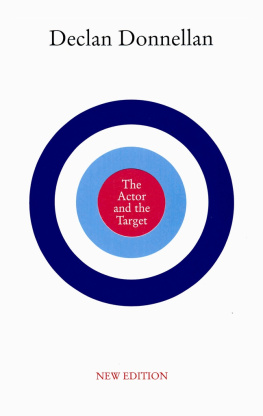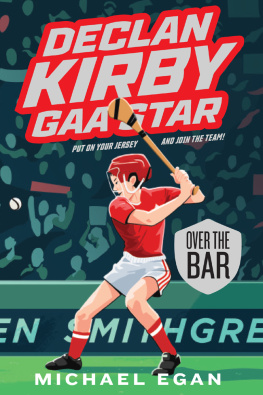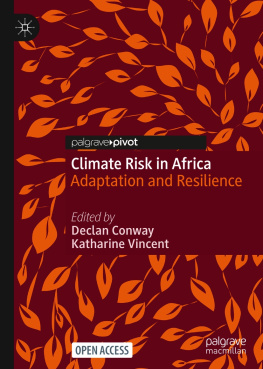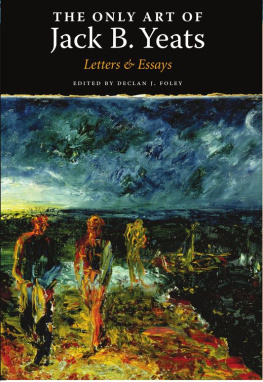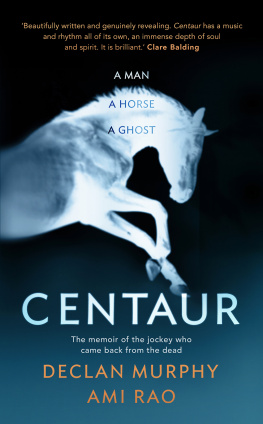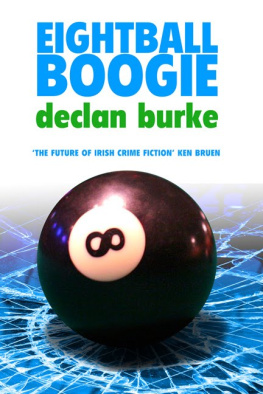Declan Donnellan - Actor and the Target
Here you can read online Declan Donnellan - Actor and the Target full text of the book (entire story) in english for free. Download pdf and epub, get meaning, cover and reviews about this ebook. year: 2005, publisher: HERN NICK, genre: Romance novel. Description of the work, (preface) as well as reviews are available. Best literature library LitArk.com created for fans of good reading and offers a wide selection of genres:
Romance novel
Science fiction
Adventure
Detective
Science
History
Home and family
Prose
Art
Politics
Computer
Non-fiction
Religion
Business
Children
Humor
Choose a favorite category and find really read worthwhile books. Enjoy immersion in the world of imagination, feel the emotions of the characters or learn something new for yourself, make an fascinating discovery.
- Book:Actor and the Target
- Author:
- Publisher:HERN NICK
- Genre:
- Year:2005
- Rating:4 / 5
- Favourites:Add to favourites
- Your mark:
- 80
- 1
- 2
- 3
- 4
- 5
Actor and the Target: summary, description and annotation
We offer to read an annotation, description, summary or preface (depends on what the author of the book "Actor and the Target" wrote himself). If you haven't found the necessary information about the book — write in the comments, we will try to find it.
Actor and the Target — read online for free the complete book (whole text) full work
Below is the text of the book, divided by pages. System saving the place of the last page read, allows you to conveniently read the book "Actor and the Target" online for free, without having to search again every time where you left off. Put a bookmark, and you can go to the page where you finished reading at any time.
Font size:
Interval:
Bookmark:

For Nick
Feverishly we cleared away the remaining last scraps of rubbish on the floor of the passage before the doorway, until we had only the clean sealed doorway before us. In which, after making preliminary notes, we made a tiny breach in the top left-hand corner to see what was beyond. Darkness and the iron testing rod told us that there was empty space. Perhaps another descending staircase, in accordance with the ordinary royal Theban tomb plan? Or maybe a chamber? Candles were procured the all-important tell-tale for foul gases when opening an ancient subterranean excavation I widened the breach and by means of the candle looked in, while Ld. C., Lady E., and Callender with the Reises waited in anxious expectation. It was some time before I could see, the hot air escaping caused the candle to flicker.
There was naturally a short suspense for those present who could not see. When Lord Carnarvon said to me, Can you see anything?, I replied to him, Yes, it is wonderful.
Howard Carter, 1922,
taken from his personal diary,
Ashmolean Museum, Oxford
This book was originally published in Russian in 2000. However, Nick Hern had commissioned me to write a book in 1988, and dutifully phoned me every six months wondering where it was. So twelve years later it occurred to me that a reworking of the Russian book would fulfil my promise. And here it is, with thanks for his welcome tenacity.
I have added some exercises and an extra chapter on blank verse. The text has shifted a lot as it was revised for various translations and the revised version that now appears has been thoroughly reshaped by all those influences.
In short, the number of people to whom I am now indebted is far too long to be included. But particular thanks must go to Dina Dodina and Judith Greenwood who toiled over Russian and British manuscripts and who encouraged me from St Petersburg and Yorkshire, and also to Stacey McNutt for her re-editing, and to Matt Applewhite and Fiona Williams.
Declan Donnellan
London, 2005
Acting is a mystery, and so is theatre. We assemble in a space and divide into two parts, one of which enacts stories for the remainder. We know of no society where this ritual never happens, so it appears that humanity has a profound need to witness acted-out representations, from television soap opera to Greek Tragedy.
A theatre is not only a literal place, but also a space where we dream together; not merely a building, but a space that is both imaginative and collective. Theatre provides a safe frame within which we can explore dangerous extremities in the comfort of fantasy and the reassurance of a group. If every auditorium were razed to the ground, theatre would still survive, because the hunger in each of us to act and be acted to, is genetic. This intense hunger even crosses the threshold of sleep. For we direct, perform and witness performances every night theatre cannot die before the last dream has been dreamt.
I am therefore I act
A baby is born not only with an expectation of mother and language, but also with an anticipation of acting; the child is genetically prepared to copy behaviours that it will witness. The first theatrical performance a baby enjoys is when its mother acts out appearing and disappearing behind a pillow. Now you see me; now you dont! The baby gurgles away, learning that this most painful event, separation from the mother, might be prepared for and dealt with comically, theatrically. The baby learns to laugh at an appalling separation, because it isnt real. Mummy reappears and laughs this time, at least. After a while the child will learn to be the performer, with the parent as audience, playing peek-a-boo behind the sofa; and eventually the game will evolve into the more sophisticated hide and seek, with multiple performers, and even a winner. Eating, walking, talking, all are developed by observation, performance and applause. We develop our sense of self by practising roles we see our parents play and expand our identities further by copying characters we see played by elder brothers, sisters, friends, rivals, teachers, enemies or heroes. You cannot teach children how to act out situations, precisely because they already do they wouldnt be human if they didnt. Indeed, we live by acting roles, be it father, mother, teacher or friend. Acting is a reflex, a mechanism for development and survival. This primitive instinct to act is the basis of what is meant by acting in this book. It is not second nature, it is first nature and so cannot be taught like chemistry or scuba diving. So, if acting in itself cannot be taught, how can we develop or train our ability to act?
Attention
Our quality of acting develops and trains itself when we simply pay it attention. In fact, all we can be taught about acting are double negatives. For example, we can be taught how not to block our natural instinct to act, just as we can be taught how not to block our natural instinct to breathe. Of course we can learn a multitude of stylised developments of our natural reflexes. The Noh actor in Japan may take decades to perfect a single gesture, as the ballerina will sweat years developing feats of muscular control. But all the Noh masters virtuosity will go for little if his ornate technique reveals nothing but ornate technique. This highly controlled art must appear, in some way, spontaneous. Those who appreciate this specialised form can discern the flicker of alertness that quickens each ancient gesture. The difference in quality between one performance and another is not in technique alone, but in the surge of life that makes that technique seem invisible; the years of training must seem to evaporate in the heat of life. Truly great technique has the generosity to vanish and take no credit.
Even the most stylised art is about life, and the more life there is present in a work of art, the greater the quality of that art. Life is mysterious and transcends logic, so the living thing can never be fully analysed, taught or learned. But those things that apparently cut out life, or seem to conceal or block it, are not nearly so mysterious as they pretend. These things are bound by logic and may be analysed, isolated and destroyed. The doctor may explain why the patient is dead, but never why the patient is alive.
Therefore this is not a book about how to act; this is a book that may help when you feel blocked in your acting.
Two provisos
It is not easy to write about acting. Acting is an art, and art reveals the uniqueness of things. Talking about acting is hard, because talking about tends to make us generalise and generalisation conceals the uniqueness of things. Good acting is always specific.
There is also a problem here with vocabulary. The words actor and acting are devalued. For example, we say that people are putting on an act when we mean that they are lying about themselves. The word acting is often used as a synonym for lying. Plato argued that there was no difference between acting and lying, and roundly condemned the theatre. Diderots Paradox of the Actor asks how we can speak of truth in performance, which of its very nature is a lie.
Emotion and truth
But we can never fully tell the truth about what we feel. Indeed, the more we feel, the more useless will be the words we find to express ourselves. The question How are you? becomes increasingly banal the more the relationship matters; the words work reasonably well to greet the postman as he delivers a package, but are woefully inadequate to a friend with cancer.
Next pageFont size:
Interval:
Bookmark:
Similar books «Actor and the Target»
Look at similar books to Actor and the Target. We have selected literature similar in name and meaning in the hope of providing readers with more options to find new, interesting, not yet read works.
Discussion, reviews of the book Actor and the Target and just readers' own opinions. Leave your comments, write what you think about the work, its meaning or the main characters. Specify what exactly you liked and what you didn't like, and why you think so.

